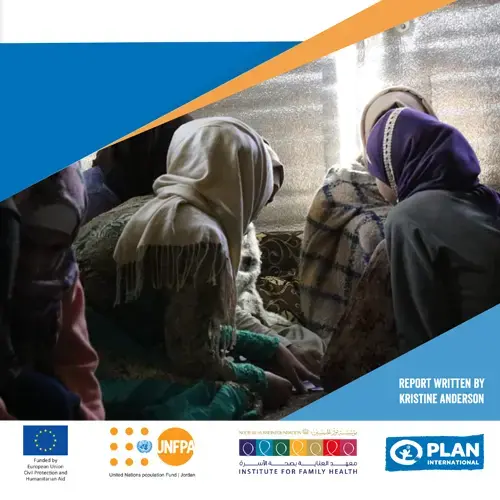The unprecedented COVID-19 pandemic is drastically changing the way that millions of women, men, girls and boys around the world lead their lives. Jordan, a country hosting more than 700 000 refugees in a troubled region, has like most other countries in the world been deeply affected by the shock of COVID- 19 to its economy and social system. Previous infectious disease outbreaks have shown us that pandemics can bring about or worsen humanitarian emergencies and amplify the risks that women and girls will face gender-based violence (GBV) and circumscribe sexual and reproductive health (SRH) rights and services.
In April 2020, the UNFPA Jordan country program in coordination with Plan International and the Institute for Family Health (IFH) Noor Al Hussein Foundation commissioned a rapid assessment of the COVID-19 situation in Jordan. The overall purpose of this rapid assessment is to measure the impact of COVID-19 on gender-based violence and sexual and reproductive health and rights among adolescent girls (defined as girls ages (10-17) and young women aged (18-24) in Jordan, including persons with disabilities (PwD).
These findings from this study are derived from a combination of quantitative and qualitative methods with about 400 respondents including:
1. 360 remote and telephone surveys targeting adolescent and adult men and women in Irbid, Karak, Amman governorates and Azraq and Za’atari refugee camps;
2. 28 key informant interviews (KII) with GBV and SRH service providers, youth educators, and members of the government; and
3. Two focus group discussions (FGD) with women and girls from the refugee and Jordanian population;
A review of literature on the gendered dimensions of infectious disease outbreaks, with a particular focus on the impacts of pandemics on gender-based violence and sexual and reproductive health, was conducted to inform the analysis and contextualize the findings of this assessment.


